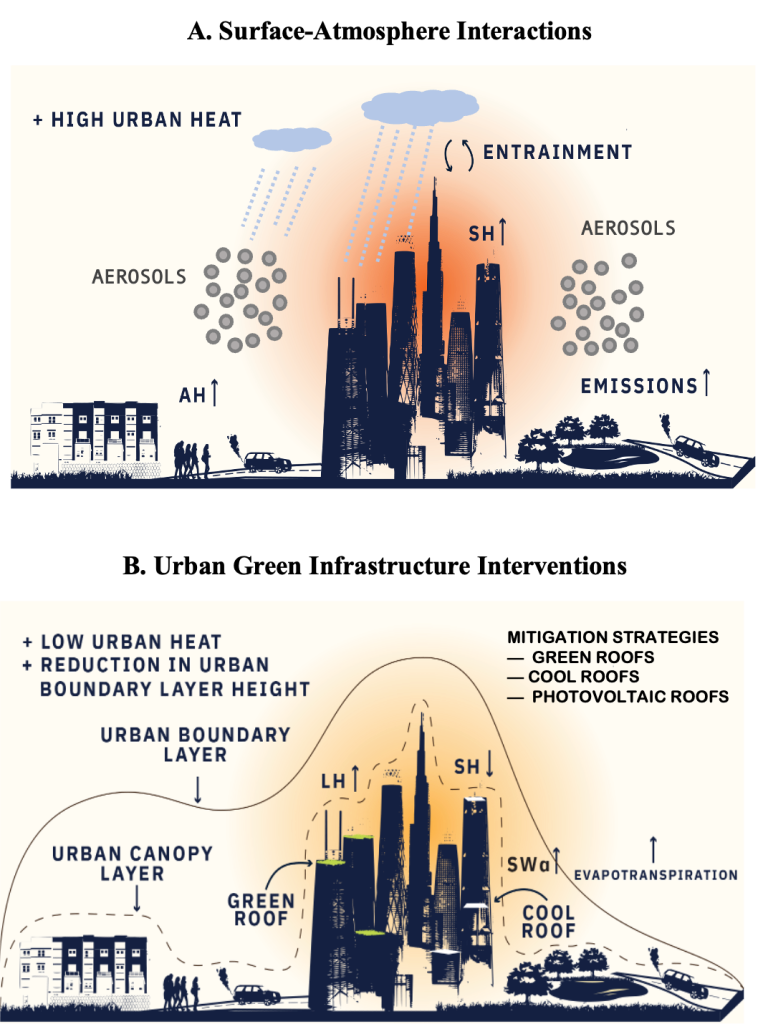NSF award 2139316 — Interactions of Urban Systems with Storms and Heatwaves, and Resulting Impacts

This project advances our fundamental understanding of urban processes as a function of land surface properties, atmospheric chemistry, and human adaptive choices designed to reduce impacts of storms and heatwaves over urban areas. This project utilizes a combination of numerical model development activities, model enhancements, and new measurement techniques from space and the earth’s surface to characterize the nonlinear effects of land cover, urban morphology, geometry, scale, and aerosol heterogeneity on the urban boundary layer processes impacting storms and heatwaves. This project contributes to the following objectives: (i) analyze the effects of interactions between the atmosphere and intra-urban land surface properties and characteristics on storms and heatwaves, (ii) analyze the contribution of urban aerosols on storms and heatwaves, and (iii) analyze the impacts of changing urban landscapes due to human development and adaptation choices. The project also studies atmospheric chemistry interactions due to urban aerosol heterogeneity and intra-urban land surface processes related to convergence and convection that modify storms and heatwaves. The weather-chemistry linkages using new model development activities and model enhancements will likely improve weather forecasting capabilities for cities. Project techniques and resulting findings will also serve as a new paradigm for integrated studies for sustainable and resilient urban systems, especially in evaluating how future urbanization and urban climate change adaptation strategies like green and cool roofs will impact storms and heatwaves over urban areas.